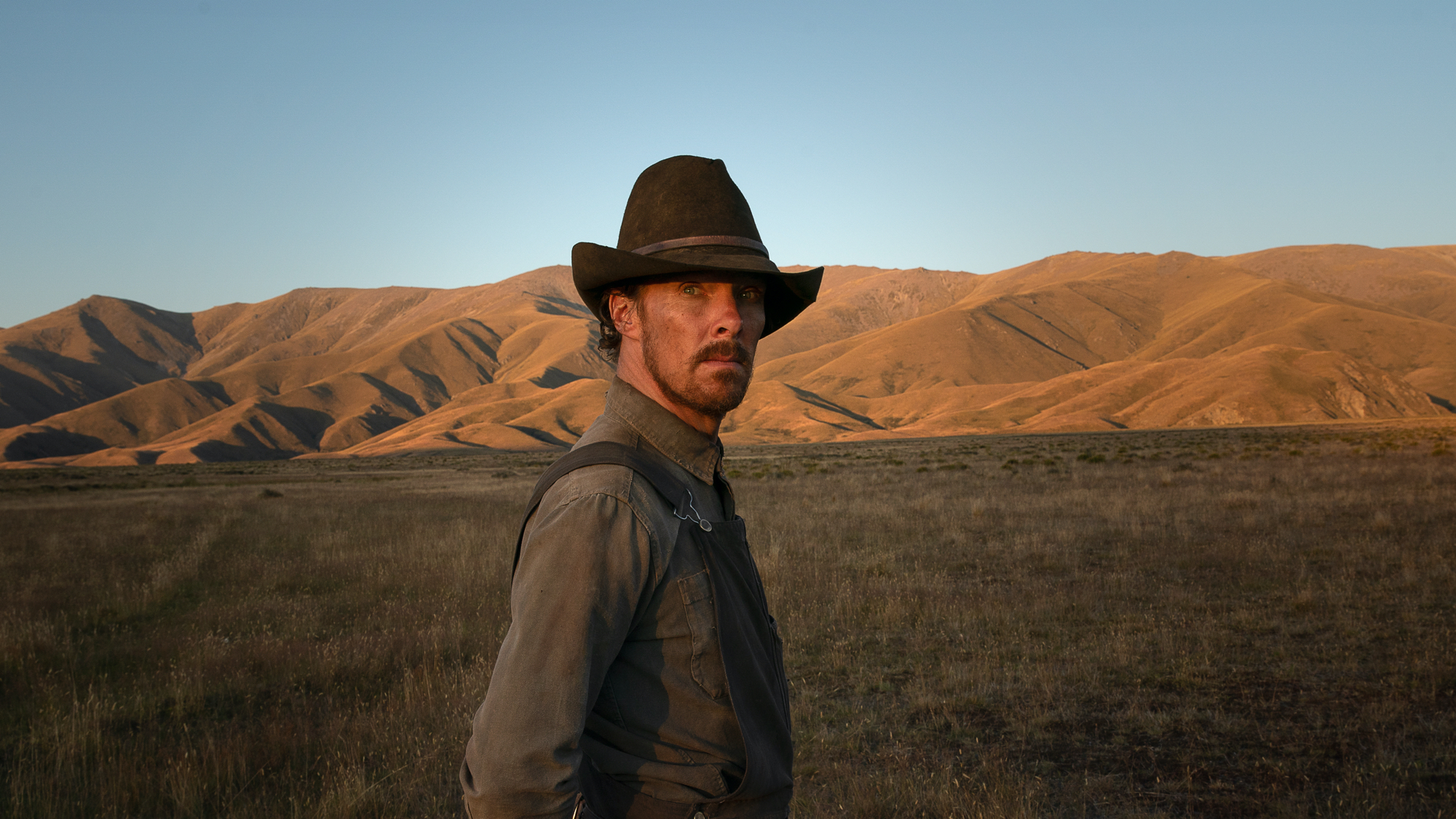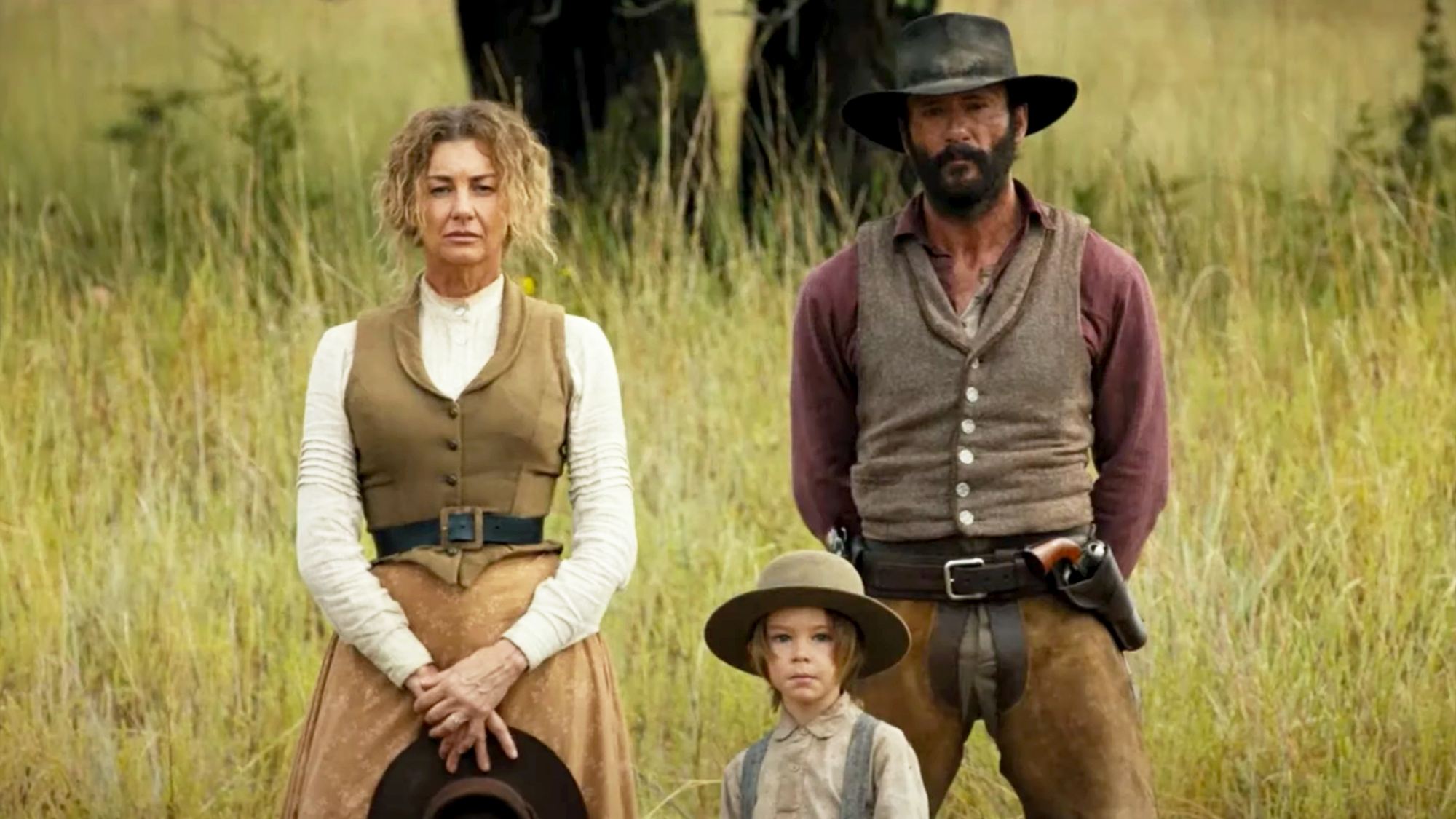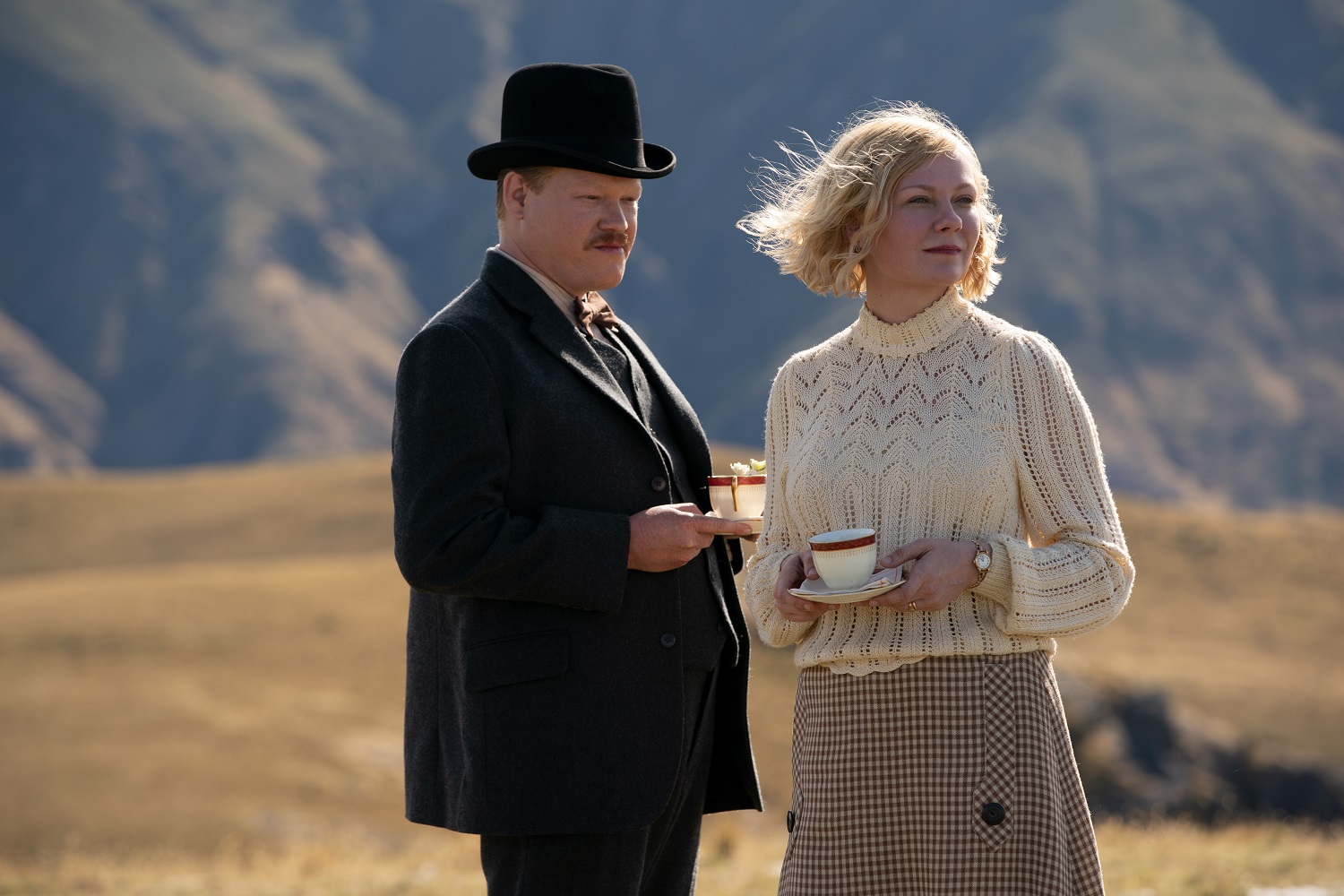1883 vs. The Power of the Dog: Which Western is worse?
Neither 1883 nor The Power of the Dog makes a convincing case for the Western genre

If you’re tuned into the entertainment press at all, then you’ll know that 1883 and The Power of the Dog both had a moment in the spotlight recently — and not for a good reason. To condense a long and tedious squabble: Sam Elliott is a famous Western actor who recently starred in the Yellowstone spinoff 1883. He hated Jane Campion’s deconstructionist Western The Power of the Dog, and said as much on the WTF with Marc Maron podcast. Campion shot back, calling him an unprintable name, and that’s pretty much where things stand.
It's a tiresome, pointless Hollywood dispute over a much-neglected movie genre — a “Western beef,” if you will. I’m not here to pick apart their comments or their reasoning, save to say that neither one came out looking so good. But as a fan of Elliott, and of Westerns in general, the dustup did serve one useful purpose: It got me curious enough to watch both 1883 and The Power of the Dog.
I knew very little about either project going in, save that Elliott starred in the former, and Campion directed the latter. Still, given the sheer amount of talent that went into both projects, I had high hopes. I’m a bit of a lapsed Western fan, and I was hoping that the two projects would reinvigorate my love for the medium. To be fair, they did — but only because after I saw them, I was eager to watch something better.
Part of me is glad that filmmakers still see the Western as an invaluable vessel for storytelling. But another part of me wonders how they can avoid simply rehashing old tropes, or tearing down what we love about the genre in the first place.
Is The Power of the Dog a good Western?
The Power of the Dog is a 2021 feature film that stars Benedict Cumberbatch, Kirsten Dunst and Jesse Plemons. In it, Cumberbatch plays Phil Burbank: a hypermasculine, old-school cowboy, who seems decidedly out of place in the rapidly modernizing Montana of 1925. When his brother George (Plemons) marries a charming window, Rose Gordon (Dunst), Phil butts heads with Rose’s son, Peter (Kodi Smit-McPhee). And then things get dark. You can currently watch the film on Netflix.
I watched The Power of the Dog first, simply because when I read about the Elliott/Campion controversy, I happened to have Netflix open in the background. I figured I had two hours to kill, and I liked all of the actors involved. After the slow-burn beginning, I waited for the movie to lead up to something exciting, shocking or profound later.
By the time the credits rolled, I was still waiting.

To its credit, there is a lot to analyze and pick apart in The Power of the Dog. It has all sorts of subtext about modernity, mythmaking, sexuality, self-actualization, education, class and family. The trouble is that, for all of the movie’s big ideas, it is exceedingly boring, superficial and full of itself.
Campion absolutely nailed the expansive, languid, atmospheric landscape shots (even though, as Elliott pointed out, she filmed the movie in New Zealand, not Montana). The trouble is that in most Westerns, those shots exist to counterbalance the brief, furious moments of violence. The old West — both real and mythic — was a magnificent place, where death really did lurk around every corner.
The Power of the Dog is simply the story of one extremely unpleasant person who hides behind a cowboy veneer.
There is no “action,” per se, in The Power of the Dog, violent or otherwise. It’s a lot of characters standing around in vaguely uncomfortable social situations, occasionally yelling at each other when their tempers reach a breaking point.
The film thinks it’s making a deep and important point about how the American cowboy myth covered up a lot of nastiness and/or uncertainty. But in truth, The Power of the Dog is simply the story of one extremely unpleasant person who hides behind a cowboy veneer. The movie makes pretensions at something greater, but never really follows through.
1883
After I wrapped up The Power of the Dog, I concluded that Elliott must have been correct. In Maron’s podcast, Elliott briefly mentioned his own recent Western project, 1883. To be scrupulously fair, Elliott did not pit the two projects against each other, save to say that 1883 filmed on-location in Texas, possibly as a counterpoint to Campion’s choice to shoot in New Zealand. But I figured if Elliott had harsh words for Campion’s most recent project, then it seemed only fair to subject his work to the same scrutiny.
1883 is a limited miniseries available to watch on Paramount Plus. This prequel to the hit drama series Yellowstone focuses on a group of travelers in a wagon train, en route to Oregon in the titular year. Real-life husband and wife Tim McGraw and Faith Hill play the ostensible protagonists, James and Margaret Dutton, who want to find a virgin plot of land and settle it along with their headstrong daughter, Elsa (Isabel May). Elliott plays Shea Brennan, a former army captain who tries (and largely fails) to keep the caravan safe.

To give credit where it’s due, 1883 is marginally better than The Power of the Dog. It has no interest in undercutting a beloved genre; it has some affection for its protagonists; and shooting on-location in Texas and Montana really does make a difference. But none of that really makes 1883 a good show.
If The Power of the Dog goes too far in dismantling everything we love about Westerns, then 1883 doesn’t go far enough. It doesn’t interrogate any of the Western’s well-worn tropes, falling back on story beats we’ve seen dozens of times before. It’s about hard, tough men making hard, tough choices and dealing with hard, tough consequences when things go wrong.
1883 is a bleak and somewhat joyless show. Admittedly, this fits the subject matter, as wagon trains were dangerous business. Bandits, Native American war parties, disease, accidents and inexperience really did kill a whole lot of people, and 1883 depicts them all. However, the show might actually be a little too bloodthirsty. In real life, about 90% of Oregon Trail settlers survived the trip.
The very first sequence in 1883 shows a brutal Lakota attack, complete with war paint and scalping. It’s a retrograde, borderline racist scene — which the show then completely walks back over the course of the next few episodes.
In fact, once you start interrogating 1883’s historical accuracy, a lot of the show doesn’t hold up. In the year 1883, it was much easier — and cheaper — to travel cross-country by railroad. By the 1880s, the Oregon Trail was partially settled, and much less wild and dangerous than it had been in the 1830s and 1840s. It seems a bit contrived for so much misfortune to befall a single party, especially since James, Shea and Shea’s partner, Thomas (LaMonica Garrett) seem to be extremely competent leaders and gunfighters. The show can’t quite decide whether to lionize these men or depict them as helpless in the face of overwhelming tragedy.
The show also had a strange relationship with its depiction of Native Americans. The very first sequence in 1883 shows a brutal Lakota attack, complete with war paint and scalping. It’s a retrograde, borderline racist scene — which the show then completely walks back over the course of the next few episodes. Every Native American the party encounters afterward is helpful, forthright and honorable — even the famously warlike Comanche. And, again, both the Comanche and the Lakota societies were in fairly bad shape by 1883 after sustained persecution from the United States government and military.
Like The Power of the Dog, 1883 nails the Western aesthetic. Unlike The Power of the Dog, it also includes a lot of beloved Western character archetypes and story situations. But because it’s not willing to interrogate any of those characters or situations, it winds up dragging until its depressing conclusion. There’s some good stuff in there, but not nearly enough.
Drumming up controversy

In the end, I spent about 12 hours watching two Westerns that I didn’t really enjoy. And I eventually realized that I did so simply because of a meaningless spat between two people I’ve never met.
If there’s a lesson here, I think it’s this: Actors and directors are no strangers to controversy surrounding their projects. Controversy is free publicity, and free publicity gets a lot of people talking about shows and movies that they wouldn’t otherwise want to watch.
Watching The Power of the Dog and 1883 didn’t really clarify the Elliott/Campion controversy. If anything, it made me realize how trivial the sniping was in the first place. However, now that Westerns are back on my radar, I do feel inspired to go seek out some good ones. Did anyone see News of the World or The Harder They Fall?
Sign up to get the BEST of Tom's Guide direct to your inbox.
Get instant access to breaking news, the hottest reviews, great deals and helpful tips.
Marshall Honorof is a senior editor for Tom's Guide, overseeing the site's coverage of gaming hardware and software. He comes from a science writing background, having studied paleomammalogy, biological anthropology, and the history of science and technology. After hours, you can find him practicing taekwondo or doing deep dives on classic sci-fi.

